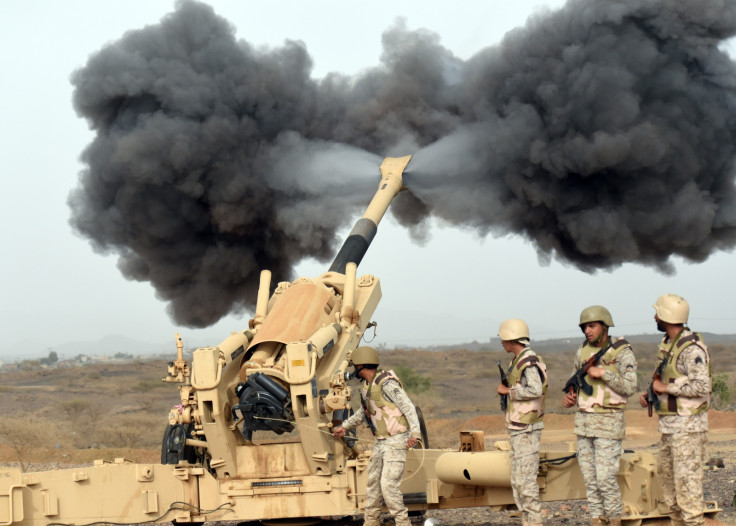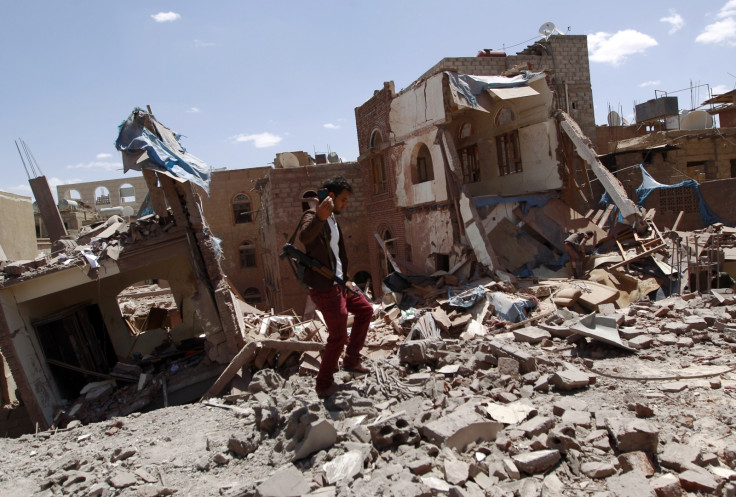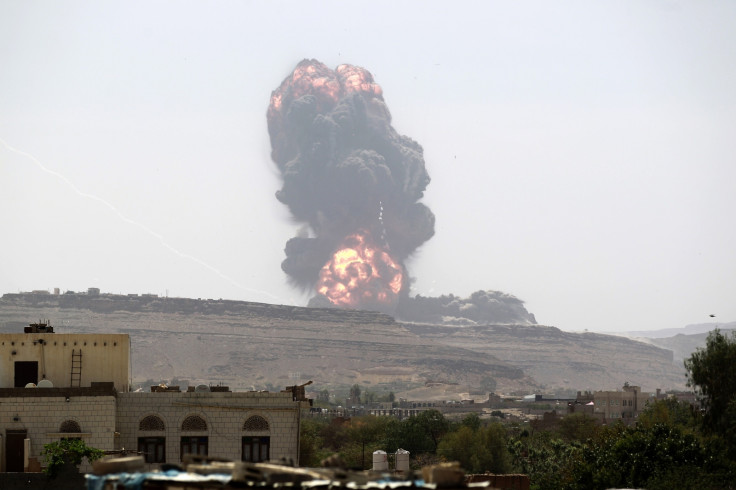Yemen is suffering at the hands of Saudi Arabia - and the UK is profiting
Human Rights Watch has identified at least 81 apparently unlawful attacks by the Saudi-led coalition.

This week's judgment by the High Court declaring that UK arms sales to Saudi Arabia are not illegal is deeply disappointing.
The landmark legal case, brought by Campaign Against Arms Trade, tried to establish that the UK government is breaking its own arms export licensing criteria by selling weapons to Riyadh, given the repeated international humanitarian law (IHL) violations the Saud-led coalition has committed during its military campaign in Yemen.
Had the High Court ruled in favour of Campaign Against Arms Trade, it was hoped that UK arms sales to Saudi Arabia would have been suspended – at least temporarily – and thereby help to pressure Riyadh to end its unlawful attacks in Yemen, where the two-year-old conflict has left more than 4,900 civilians dead, another 8,500 wounded, and brought millions in the country to the brink of starvation.
So Monday's ruling is terrible news for Yemen's civilians. But the Court's approach also involved some significant omissions.
For example, in reaching a judgment on whether there is a "serious risk" that UK arms and equipment sold to Saudi Arabia will be used to commit "a serious violation of international humanitarian law" - at the heart of this legal case - it is crucial to look closely at Saudi Arabia's record during the Yemen conflict, and to scrutinise the contrasting evidence put forward by the different parties.
The Court's judgement commends the UK government's processes for considering allegations of violations of IHL. This includes the fact that cases are placed on a central government database, known as "the Tracker", as well as the frequent and high-level discussions on these issues that take place across Whitehall. This activity is cited as evidence of Ministerial good intentions and underpins the government's claim, backed by the Court, that the UK is compliant with its legal obligations.
But is this really good enough? Human Rights Watch has identified at least 81 apparently unlawful attacks by the Saudi-led coalition, which have hit schools, markets, hospitals and homes. Amnesty International and the UN have also identified scores of additional Saudi-led coalition strikes which they judge to be unlawful. While it does not say so explicitly, the logic of the UK's position is that Human Rights Watch, Amnesty and the UN rights agencies - whose work is often commended by the UK government in other contexts for its objectivity and rigour - have repeatedly gotten it wrong in the case of Yemen.

The government is entitled to challenge our organisations' research, legal analysis and conclusions, of course, but it has failed to make public any convincing counter evidence to dispute ours and substantiate theirs. And, more importantly, the Court is seemingly happy with the government's assurances from Saudi Arabia that it remains "genuinely committed to compliance with international humanitarian law".
For example, the Court makes much of the fact that the government quickly raised concerns when the Saudi-led coalition bombed a funeral hall in Sanaa in October 2016 – an appalling attack that killed or wounded hundreds of civilians. But even in this case – which the UN human rights office called "outrageous" and which prompted the United States to review its support to the Saudi-led coalition and hold up some weapons sales – the UK has not said whether it believes the airstrike was lawful or not.
Similarly, the judgment mentions an October 2016 attack on Al-Zaydiya security compound in western Yemen, noting the site was "alleged to be a prison by some." Our researchers visited the site, documented weapons remnants from the attack, and interviewed civilians who were grievously wounded, many with horrible burns. They told Human Rights Watch of the horror they felt when the first bomb struck, when they realised the guards would not let them out, and when the next two weapons struck. Here again, the government refuses to state whether it judges the strike illegal or not.

The Court also makes some statements about the work of human rights groups, including that they have often "not visited and conducted investigations in Yemen and are necessarily reliant on second-hand information." This is not correct. Human Rights Watch has visited Yemen repeatedly since the start of the war in March 2015, and conducted numerous on-site inspections. Nor does Human Rights Watch rely on second-hand information. Instead, we conduct thorough investigations that draw on multiple sources of information, including interviews, video and photographic evidence, and satellite imagery.
The Court also notes approvingly the frequency of UK government contact with the Saudi authorities, and a number of high-profile recent public statements by the Saudis. But where is the evidence that this has translated into changes in Saudi conduct?
There is no let-up in the Yemen war. The Saudi-led coalition, supported and armed by the UK, continues to carry out attacks that we and others deem to be unlawful. There are simply too many unanswered questions for this ruling to be the last word on UK arms sales to Saudi.
David Mepham is UK director at Human Rights Watch
© Copyright IBTimes 2025. All rights reserved.






















